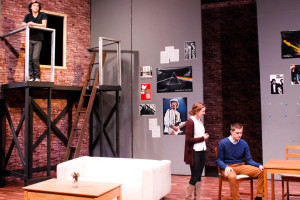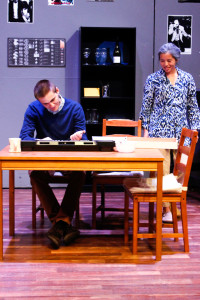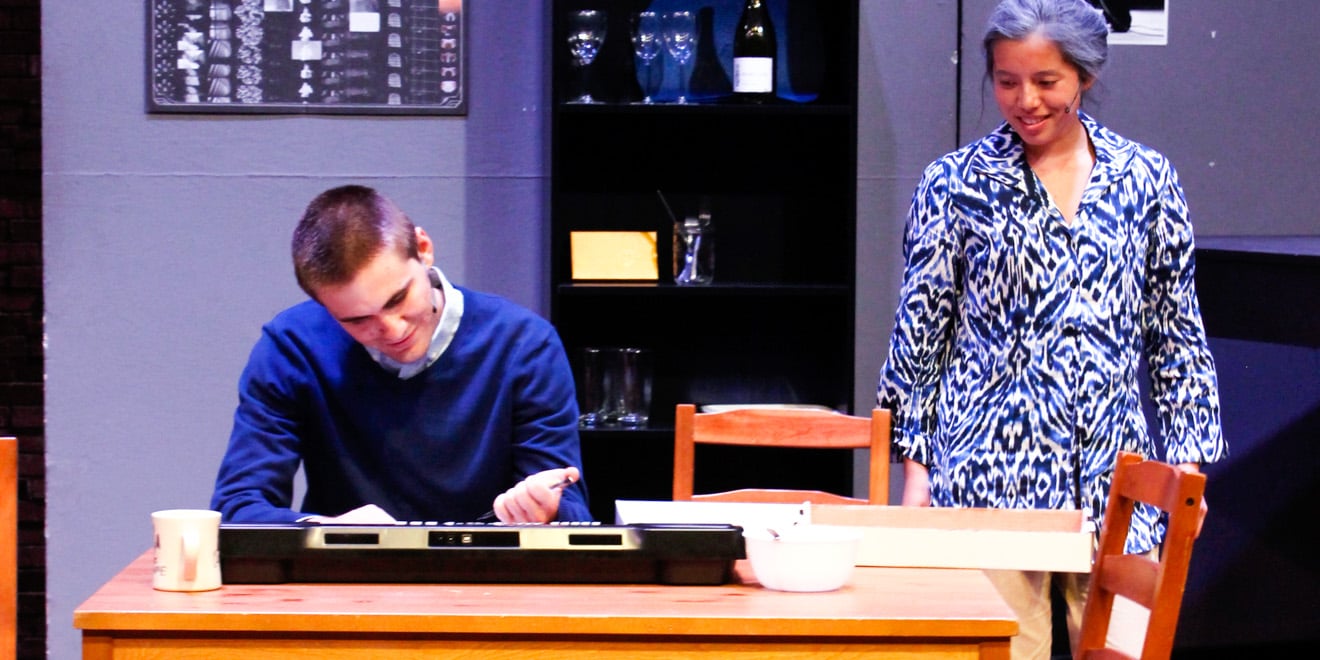“Mirror Image,” an emotive musical conceived and composed by Louis Lagalante ‘15 and written and directed by Patty Hamilton ‘16, invites members of the Stanford community to reflect on life, love and the difficulty of holding onto our passions.
Performed on the stage of Dinkelspiel Auditorium, the action is positioned 180 degrees from the main house, facing the back wall — where the audience is invited to sit upon bleachers and experience the show from an intimate vantage point.
The format of the show itself is a compelling combination of words and music. Accompanied by a brilliant orchestral pit playing styles reminiscent of traditional symphonic music, acoustic and folk and even occasionally soul, “Mirror Image” intersperses a variety of genres — a testament to the compositional talent of Lagalante.

As the opening song plays (a poignant piece entitled “Move On”), we are thrust into the lives of three friends living in New York and given little snippets of exposition in the dialogue between lyrics. Under Hamilton’s fluid direction, characters appear and disappear from different parts of a massive set — on a fire escape, from a doorway, between wall flats — creating a dynamic and fast-paced world in which past and present are seamlessly intertwined. Through it all, we are introduced to David, his girlfriend Kiera and his best friend Mike (Jace Casey ’17), with whom he dreams of changing the world through music.
The story flashes ten years into the future, when David and Kiera learn that their old friend Mike (Alex Kim ’17) has finally made it big. As the now middle-aged couple sit on opposite ends of their living room, reading, versions of their former selves in matching sweaters and shades burst into the room dancing, giving us some insight into the glory days of their past. Eventually, the present-day couple invite the now-successful Mike to their home in an attempt to reconnect, forcing David — played by the melodious Jack Lundquist ‘17 — to confront his newfound insecurities about his music, lifestyle and crumbling marriage.
The only character throughout the show to be portrayed by the same actor in both his present and past forms, David’s reluctance to leave the past behind is made even more evident through this dynamic directorial decision, making the people around him appear not as their true selves but as David’s own glorified memories of them.
Even in light of this very human story, certain aspects of the show could have benefited from more specificity. Though the starry-eyed, socially-conscious “starving artist” archetype is a relatable one, the group’s shared dream of saving the world, while touching, might have felt a little more sincere had there been more of a personality to this dream. What does changing the world mean to each individual? What passions, aside from music, make them tick? The female characters in the show are also somewhat lacking: David’s girlfriend, Kiera — played in her younger form by Kathleen Kelso ‘18 and in her older form by Ellen Woods ‘18 — is given beautiful solos and portrayed with a gentle nuance by both actresses. Even so, her role seems only tangential to David’s life and success, preventing us from fully understanding her identity in the piece.

As if to balance this, the musical talent of these performers is tremendous. Of particular note is Sonja Johnson-Yu’s ‘18 performance as Joan, David’s mother, who struggles with cancer. With a delicate timbre, Johnson-Yu delivers a touching solo about the difficulty of holding onto life once living becomes too painful to bear. Lundquist does a fantastic job as the lead of the show; his high range and convincing portrayal of frustration effectively communicate the struggle of trying to reconnect with his art.
Ultimately, “Mirror Image” succeeds in contributing something incredibly brave and much-needed to the Stanford theater community — original work. Through its moving music and stellar direction, the show invites us to examine not only the ways in which David’s current choices mirror those of his past but also the ways in which this narrative mirrors our own as artists and dreamers.
Contact Madelaine Bixler at mbixler ‘at’ stanford.edu.
